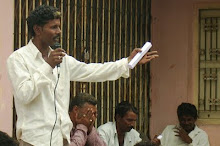Times of India: Ahmedabad: Thursday, 20 July 2023.
It was in February that the principal chief conservator of forests (wildlife) issued a letter on prohibiting “illegal” salt farms inside the wild ass sanctuary.
After several months of appeals from the agariya community, which has been involved in salt farming in the Little Rann for centuries and is now facing a threat of eviction, had met the state environment minister and chief minister Bhupendra Patel on Tuesday, seeking a solution.
The community got a breather when the state government’s joint expert committee on Wednesday filed its report before the National Green Tribunal, which took suo motu cognizance of the little Rann of Kutch sanctuary.
The report accepted that the Agariyas and the protected wild ass population had been living together for centuries and that the animals do not face threat from them.
The joint expert committee’s report has been prepared following the roadmap to protect the wild asses in the Rann of Kutch.
The roadmap includes a number of measures such as a complete ban on vehicles, loaders and trucks from entering the salt pan within the sanctuary limits between June 16 and October 15. This is the breeding season for the wild ass and the ban is intended to protect the species.
All Agariyas, the traditional salt-makers in the Rann of Kutch, will be given identity cards by the principal chief conservator of forests.
“The Agariyas will have to register their vehicles and mechanized devices ahead of making salt at the pans in the sanctuary limits,” states the report.
There will be designated routes marked within the sanctuary, and the Agariya community will be required to take only those routes to transport the salt out of the area. Eco-sensitive zones will be marked by the forest department. Trenches will be dug all along the protected limits, other than those connected by road, to prevent illegal entry of vehicles into the protected zone. Harinesh Pandya, a member of the Agariya Heet-Rakshak Manch, said, “Five years ago, the Gujarat government had even launched a solar pump system scheme for the agariyas with 80% subsidy, benefiting thousands of them. It was after this that several agariyas were informed that they may have to vacate the area. Following interventions from local elected representatives, they were allowed to enter again on humanitarian grounds.”
It was in February that the principal chief conservator of forests (wildlife) issued a letter on prohibiting “illegal” salt farms inside the wild ass sanctuary.
After several months of appeals from the agariya community, which has been involved in salt farming in the Little Rann for centuries and is now facing a threat of eviction, had met the state environment minister and chief minister Bhupendra Patel on Tuesday, seeking a solution.
The community got a breather when the state government’s joint expert committee on Wednesday filed its report before the National Green Tribunal, which took suo motu cognizance of the little Rann of Kutch sanctuary.
The report accepted that the Agariyas and the protected wild ass population had been living together for centuries and that the animals do not face threat from them.
The joint expert committee’s report has been prepared following the roadmap to protect the wild asses in the Rann of Kutch.
The roadmap includes a number of measures such as a complete ban on vehicles, loaders and trucks from entering the salt pan within the sanctuary limits between June 16 and October 15. This is the breeding season for the wild ass and the ban is intended to protect the species.
All Agariyas, the traditional salt-makers in the Rann of Kutch, will be given identity cards by the principal chief conservator of forests.
“The Agariyas will have to register their vehicles and mechanized devices ahead of making salt at the pans in the sanctuary limits,” states the report.
There will be designated routes marked within the sanctuary, and the Agariya community will be required to take only those routes to transport the salt out of the area. Eco-sensitive zones will be marked by the forest department. Trenches will be dug all along the protected limits, other than those connected by road, to prevent illegal entry of vehicles into the protected zone. Harinesh Pandya, a member of the Agariya Heet-Rakshak Manch, said, “Five years ago, the Gujarat government had even launched a solar pump system scheme for the agariyas with 80% subsidy, benefiting thousands of them. It was after this that several agariyas were informed that they may have to vacate the area. Following interventions from local elected representatives, they were allowed to enter again on humanitarian grounds.”
















.jpg)
.jpg)
.jpg)
.jpg)













No comments:
Post a Comment